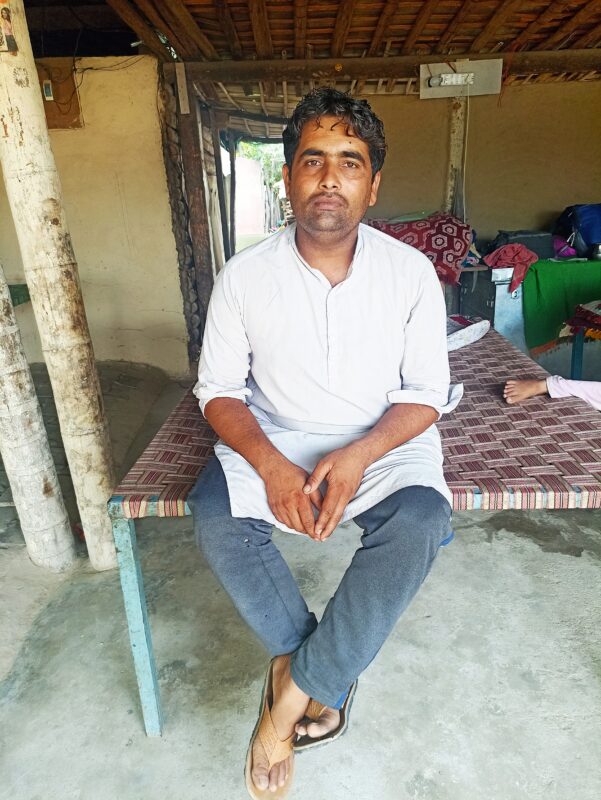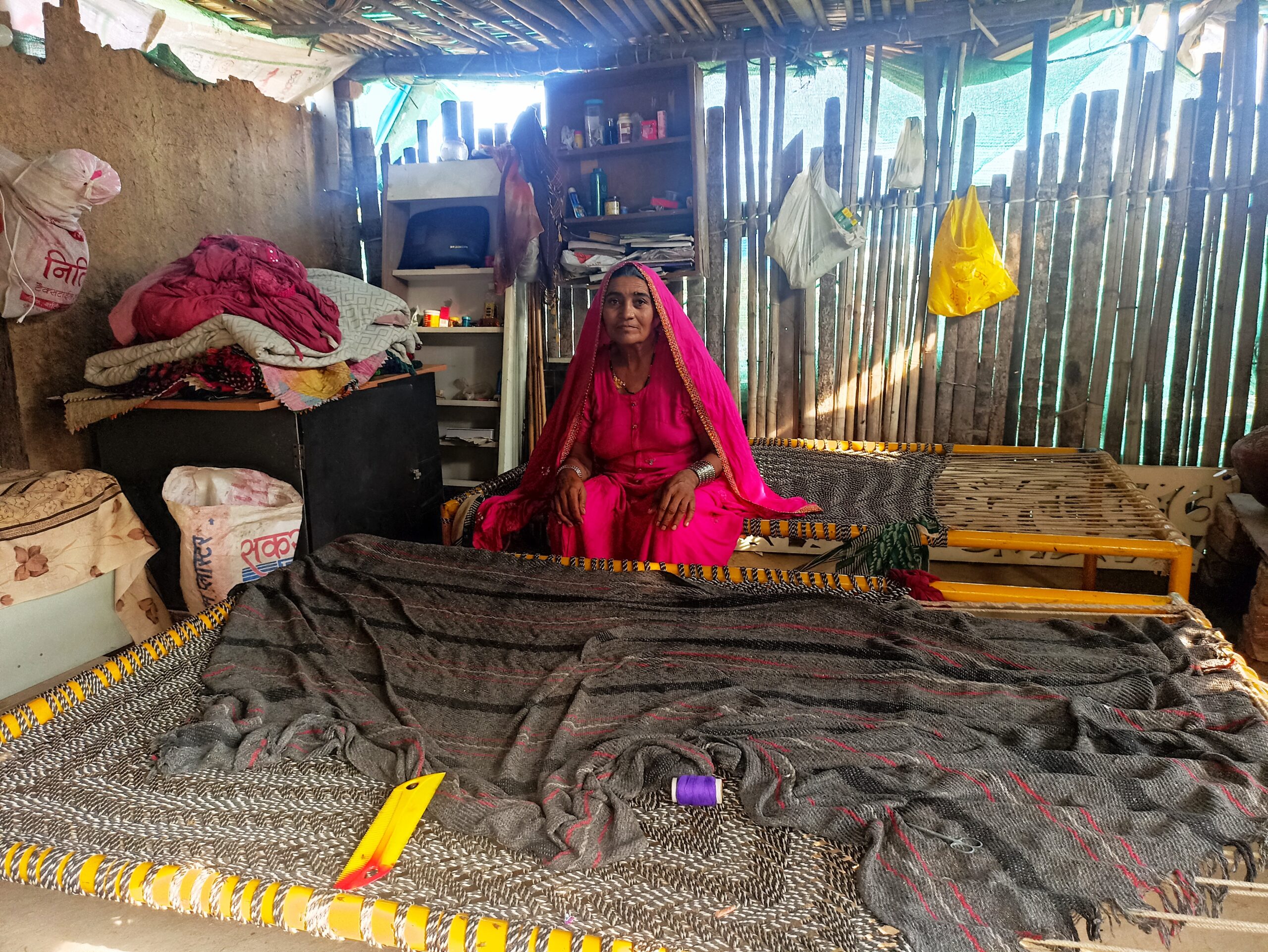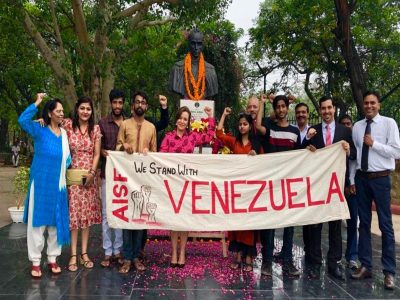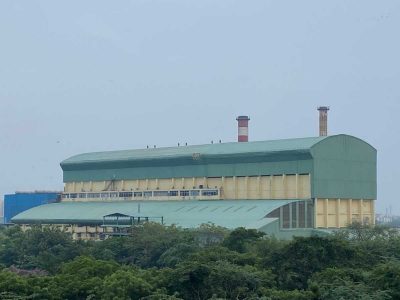Lado Bhagat, who reached India with 12 other members of his family last month following a tormented life in Sindh, Pakistan, finally senses relief and security.
The 58-year-old, who landed in Delhi on June 5 with his wife, two sons, and a daughter at the Majlis Park refugee camp, narrated tales of horrors his family had to endure on a regular basis over the last 35 years.
“I used to sing devotional songs in Sindh (Pakistan) to manage my family. However, the situation kept getting worse as days progressed and we had to come to India for our safety. We had planned the escape earlier in 2020 but things got delayed due to the pandemic,” explains Bhagat in a makeshift house located across a dumping ground in a neighbourhood that had small, congested dwellings with narrow alleyways. His house has two medium-sized cots.
“Surviving was becoming tougher by the day,” he added when asked about his experience in Pakistan.
“We were forced to convert from our religion by the locals. They used to say, ‘Agar yahaan rehna hai to muslim ban jaao tabhi salaamat reh paaoge’ (If you want to live here safely then you better convert and become a Muslim). Verbal abuse was a daily occurrence and the authorities did not help us either. The police stood helpless.”
He added that he wasn’t getting paid for the work he did.
“People used to hire us for work but not pay us at the end of the day. This happened multiple times. The only support system we had was other victims like us. There were days when I had to work all day but there was no payment and I had to return home empty-handed. There have been occasions where we had to eat at our neighbours’ house,” recalled Bhagat.
Sangeeta, Bhagat’s daughter, wanted to become a singer. But lack of opportunities and safety for women became hurdles.
“I wanted to become a singer since childhood. But it was very difficult to learn music in Pakistan because there is no platform for people like us. I used to tag along with my father for his performances to see and learn from him but that also stopped after a certain age because it was unsafe,” she says before explaining it further.
“It was a very unsafe place for girls. Girls there were isolated at home. They are not allowed to go out. Even in the name of education, only Urdu is taught there.”
For the last few years, migration of Hindus from Pakistan to India has increased. Delhi is host to multiple Pakistani refugee camps including Majnu Ka Tila, Jahangirpuri, Sanjay Colony and Majlis Park. Refugees from all over the world come to reside in Delhi. According to a report published by UNHCR (United Nations High Commissioner for Refugees) in December 2022, a total number of 46,000 refugees seek shelter in Delhi.
The Hindus who have travelled from Pakistan are being fed and accommodated thanks to the efforts of Kiran Chukapalli’s foundation, Refugee Aid Project.
Chukapalli claims that over the past few years, migration has increased the burden on Pakistani Hindu refugees arriving here.
“An average Pakistani household arrives in India with barely 5,000 rupees which makes it extremely challenging for them to sustain in a new country,” said Chukapalli to Patriot.
He further added that he would lobby the government to implement a measure which ensures the migrants don’t have to worry about accommodation or food for at least a year.
Road full of difficulties
As Bhagat had to leave for work, his 34-year-old son Teerth joined in to explain the journey to Delhi from Pakistan.
“It was horrible. Till the day my parents reached here, I was unsure of what would happen.”
While it was easy to travel from their hometown to Karachi due to the availability of trains, there weren’t many options available for travel to Attari border from Karachi.
“My family had to walk at least 30 kilometres before getting a bus,” said Teerth.
“I have been living in Delhi for the last four years and have had to spend around 4.5 lakh rupees overall with about 35,000 rupees on one person [for trip to India from Pakistan]. This was very challenging because I had arrived here without a degree or professional skills. Thanks to assistance from other refugees, I was able to acquire a cart on which I sold phone covers and made between 500 and 600 rupees per day. Over the last three years, I have utilised this income to save around 10,000 rupees each month and then finally used the money to arrange the trip for my family.”
Teerth also talked about the constant fear that surrounded him concerning the well-being of his family.
“There was a sense of uneasiness until I saw them. I used to get very scared when I would talk to my family and hear about incidents. I wanted them to come as soon as possible, but for that, I needed to gather funds as well. But there was always that worry at the back of my mind: what if something like COVID happens again? What if the services are discontinued? There’s no way to come back. What if the assaults got out of hand someday?”
Future plans
Laxmi Bhagat, Teerth’s 56-year-old mother, added that it felt amazing to be in a secure place where you don’t have to worry about violence.
“Even though the space we have is limited, it is still far more pleasant than the one we had in Sindh,” she said.
Asked about future plans for the family, Teerth said, “First, I’ll have to check the procedure needed to extend the five-year visa, then only I will be able to think about the future. Hopefully, everything will settle down.”
He wants to educate the younger generation. “However, my priority is to give the best possible education to the younger generation so that they can make a life for themselves beyond this camp.”

Teerth concluded by saying, “Things will surely get better from here. Earlier I was the sole breadwinner, looking after a family of six individuals but now that my family is here, I’ve got more people to help me.”
His father and brother have found low-paying jobs.
“There’s a metro line being constructed just below the camp. I will ask around there as well to find if there are any jobs for my family members. Whatever we have to endure, things are only going to get better from here.”





